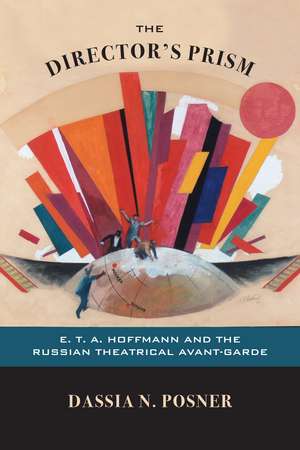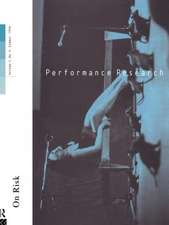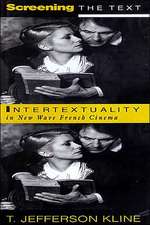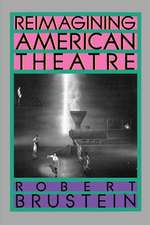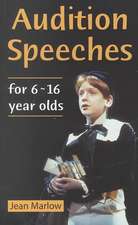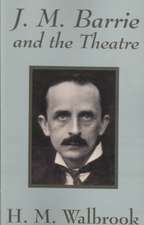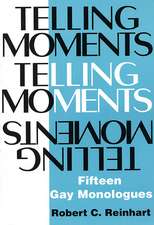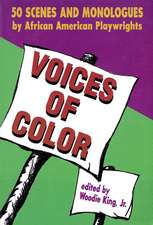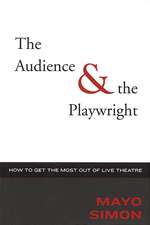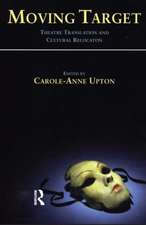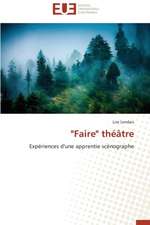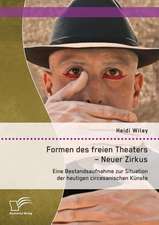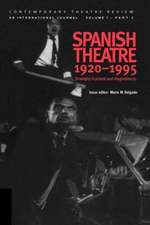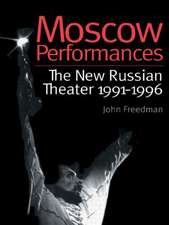The Director's Prism: E. T. A. Hoffmann and the Russian Theatrical Avant-Garde
Autor Dassia N. Posneren Limba Engleză Paperback – 15 aug 2016
Finalist, 2017 Theatre Library Association George Freedley Memorial Award
Shortlist, 2019 Prague Quadrennial Best Scenography and Design Publication Award
The Director's Prism investigates how and why three of Russia's most innovative directors— Vsevolod Meyerhold, Alexander Tairov, and Sergei Eisenstein—used the fantastical tales of German Romantic writer E. T. A. Hoffmann to reinvent the rules of theatrical practice. Because the rise of the director and the Russian cult of Hoffmann closely coincided, Posner argues, many characteristics we associate with avant-garde theater—subjective perspective, breaking through the fourth wall, activating the spectator as a co-creator—become uniquely legible in the context of this engagement. Posner examines the artistic poetics of Meyerhold's grotesque, Tairov's mime-drama, and Eisenstein's theatrical attraction through production analyses, based on extensive archival research, that challenge the notion of theater as a mirror to life, instead viewing the director as a prism through whom life is refracted. A resource for scholars and practitioners alike, this groundbreaking study provides a fresh, provocative perspective on experimental theater, intercultural borrowings, and the nature of the creative process.
Shortlist, 2019 Prague Quadrennial Best Scenography and Design Publication Award
The Director's Prism investigates how and why three of Russia's most innovative directors— Vsevolod Meyerhold, Alexander Tairov, and Sergei Eisenstein—used the fantastical tales of German Romantic writer E. T. A. Hoffmann to reinvent the rules of theatrical practice. Because the rise of the director and the Russian cult of Hoffmann closely coincided, Posner argues, many characteristics we associate with avant-garde theater—subjective perspective, breaking through the fourth wall, activating the spectator as a co-creator—become uniquely legible in the context of this engagement. Posner examines the artistic poetics of Meyerhold's grotesque, Tairov's mime-drama, and Eisenstein's theatrical attraction through production analyses, based on extensive archival research, that challenge the notion of theater as a mirror to life, instead viewing the director as a prism through whom life is refracted. A resource for scholars and practitioners alike, this groundbreaking study provides a fresh, provocative perspective on experimental theater, intercultural borrowings, and the nature of the creative process.
Preț: 349.05 lei
Nou
Puncte Express: 524
Preț estimativ în valută:
66.79€ • 71.42$ • 55.69£
66.79€ • 71.42$ • 55.69£
Carte tipărită la comandă
Livrare economică 18 aprilie-02 mai
Preluare comenzi: 021 569.72.76
Specificații
ISBN-13: 9780810133556
ISBN-10: 0810133555
Pagini: 344
Dimensiuni: 152 x 229 x 23 mm
Greutate: 0.48 kg
Editura: Northwestern University Press
Colecția Northwestern University Press
ISBN-10: 0810133555
Pagini: 344
Dimensiuni: 152 x 229 x 23 mm
Greutate: 0.48 kg
Editura: Northwestern University Press
Colecția Northwestern University Press
Notă biografică
DASSIA N. POSNER is an assistant professor in the Department of Theatre at Northwestern University.
Cuprins
Table of Contents
List of Figures
Formatting and Abbreviations
Preface and Acknowledgements
Introduction: Hoffmann’s Prism
Prologue/Polemic: “Unnecessary Truth”
"Under the Sign of Hoffmann"
Refraction
Chapter 1: Meyerhold-Dapertutto: Framing the Grotesque
Prologue/Polemic: “The Cricket on the Hearth, or, at the Keyhole”
Enter Doctor Dapertutto
Dapertutto’s Three Oranges: The Scenario, the Studio, and the Journal
Interlude: Inspector General (1926)
Epilogue: "A Waterless Flood"
Chapter 2: Tairov-Celionati: Mime-Drama and Kaleidoscopic Commedia
Prologue/ Polemic: “The Dusk of The Dawns”
Mime-Drama and the New Theatre
Interlude: Princess Brambilla: A Kamerny Capriccio after Hoffmann (1920)
Epilogue: An Independent Path
Chapter 3: Peregrinus Tyss meets Pipifax: Eisenstein, the Grotesque, and the Attraction
Prologue/Polemic: Tarelkin’s Death
The Theatrical Civil-War Adventures of Mr. Peregrinus Tyss
Tyss’s Moscow Experiments.
Interlude: Pipifax’s Pantomime: Columbine’s Garter (1922)
Epilogue: "Through Theatre to Film"
Conclusion: The Afterlife of a Death Jubilee
Hoffmann’s Jubilee (1922)
The Afterlife of Refracted Light
Appendix A: Three Essays from Love for Three Oranges: The Journal of Doctor Dapertutto
Appendix B: Columbine’s Veil
Appendix C: Pierrette’s Veil
Appendix D: Columbine’s Garter
Notes
Works Cited
Index
List of Figures
Formatting and Abbreviations
Preface and Acknowledgements
Introduction: Hoffmann’s Prism
Prologue/Polemic: “Unnecessary Truth”
"Under the Sign of Hoffmann"
Refraction
Chapter 1: Meyerhold-Dapertutto: Framing the Grotesque
Prologue/Polemic: “The Cricket on the Hearth, or, at the Keyhole”
Enter Doctor Dapertutto
Dapertutto’s Three Oranges: The Scenario, the Studio, and the Journal
Interlude: Inspector General (1926)
Epilogue: "A Waterless Flood"
Chapter 2: Tairov-Celionati: Mime-Drama and Kaleidoscopic Commedia
Prologue/ Polemic: “The Dusk of The Dawns”
Mime-Drama and the New Theatre
Interlude: Princess Brambilla: A Kamerny Capriccio after Hoffmann (1920)
Epilogue: An Independent Path
Chapter 3: Peregrinus Tyss meets Pipifax: Eisenstein, the Grotesque, and the Attraction
Prologue/Polemic: Tarelkin’s Death
The Theatrical Civil-War Adventures of Mr. Peregrinus Tyss
Tyss’s Moscow Experiments.
Interlude: Pipifax’s Pantomime: Columbine’s Garter (1922)
Epilogue: "Through Theatre to Film"
Conclusion: The Afterlife of a Death Jubilee
Hoffmann’s Jubilee (1922)
The Afterlife of Refracted Light
Appendix A: Three Essays from Love for Three Oranges: The Journal of Doctor Dapertutto
Appendix B: Columbine’s Veil
Appendix C: Pierrette’s Veil
Appendix D: Columbine’s Garter
Notes
Works Cited
Index
Recenzii
“Posner explores the many ways in which Hoffmann’s literary fantasies prompted a theatrical revolution in Russia during the first decades of the twentieth century. Through close analyses of archives and directorial promptbooks, she illustrates the rich lines of influence among three of Russia’s most important avant-garde directors.” —Sharon Marie Carnicke, author of Stanislavsky in Focus
"The Director’s Prism takes as its starting point the works of E.T.A. Hoffmann and his influence . . . Yet, the work is much more than that. Take the sections on Hoffmann’s influence away and this book would still have meaning and add new knowledge. Posner encourages us, like the directors that she examines, to see the role of theatricality in theatre. She creates an alternative lens through which we can examine how directors interpret text . . . As a director, the prism lens through which Posner shines a directorial light is both useful and meaningful: it also enables a clear frame in which we are able to re-examine these practitioners . . . Posner’s ability to draw on a variety of sources including promptbooks, diaries, reviews, government documents, and letters lies at the heart of the book’s strength. In a time where our assumptions are shifting in relation to Russian theatre practice, The Director’s Prism should be recommended reading for all." —Stanislavski Studies
“In her engrossing, impressively researched, and highly readable study . . . Dassia N. Posner . . . remind[s] readers . . . that Stanislavski was only one point of reference and that the vast diversity of the Russian stage offered varied inspirations . . . For practicing stage artists, students of modern theatre, and scholars, Posner’s The Director’s Prism, supported by a foundation of her wide-ranging research and piercing analysis, reveals the evolving role of the modern director, Russian style. Emphasis on the value of cross-cultural influences . . . and the complexity of the creative process, enlivens a book certain to inspire further experimentation and fresh research into a theatrical culture whose unique and astonishing diversity is, in itself, inspiring.” —Comparative Drama
“The Director’s Prism is a splendid contribution to the history of Russian theater and more broadly to European and world theatrical and cultural history, combining expertise in various fields rarely found in a single scholar.” —Harlow Robinson, author of Russians in Hollywood, Hollywood’s Russians: Biography of an Image
“The Director’s Prism is a work—at once multilayered and highly focused—about making theatre and making meaning . . . Posner expands and revitalizes our notions of three artists whose work remains poorly understood, due in large measure to 'the violent erasure of Meyerhold, the systematic discrediting of Tairov, and the periodic creative silencing of Eisenstein' and the resultant 'gaps and distortion in our understanding of their legacies.' . . . Her monograph has multiple strengths . . . while maintaining a scholar’s rigor throughout, the book has great value for both undergraduate and graduate level teaching.” —TDR: The Drama Review
"In The Director’s Prism, Dassia Posner . . . not only authoritatively establishes Hoffman’s importance but also offers an insightful account of the complex webs of innovation and inspiration at the heart of the Russian and early Soviet theatrical avant-garde . . . While the book is essential reading for anyone interested in the Russian theatrical avant-garde, Posner’s theorization of the concept of refraction makes it quite valuable for anyone interested in questions of artistic influence—especially as these are problematized by Modernism’s thirst for innovation." —Slavic and East European Journal
"Provocative... Posner’s book on the refraction of the ‘fantastical Romantic Hoffman’, informed by a depth of understanding of the context of revolutionary Russia and by meticulous original research, makes a valuable contribution to theatre history and to contemporary theatre study and practice." —Theatre Research International
“Dassia Posner’s eloquently written book demonstrates originality and impressive research. It will be useful to a wide range of audiences, including academics and students whose research involves Russian theatre, European modernism, Russian modernist directors and the theater of the grotesque.” —Julia Listengarten, author of Russian Tragifarce: Its Cultural and Political Roots
". . . highly original and successful . . . a truly exceptional source for theatre scholars and practitioners alike." —Theatre Survey
"The Director’s Prism takes as its starting point the works of E.T.A. Hoffmann and his influence . . . Yet, the work is much more than that. Take the sections on Hoffmann’s influence away and this book would still have meaning and add new knowledge. Posner encourages us, like the directors that she examines, to see the role of theatricality in theatre. She creates an alternative lens through which we can examine how directors interpret text . . . As a director, the prism lens through which Posner shines a directorial light is both useful and meaningful: it also enables a clear frame in which we are able to re-examine these practitioners . . . Posner’s ability to draw on a variety of sources including promptbooks, diaries, reviews, government documents, and letters lies at the heart of the book’s strength. In a time where our assumptions are shifting in relation to Russian theatre practice, The Director’s Prism should be recommended reading for all." —Stanislavski Studies
“In her engrossing, impressively researched, and highly readable study . . . Dassia N. Posner . . . remind[s] readers . . . that Stanislavski was only one point of reference and that the vast diversity of the Russian stage offered varied inspirations . . . For practicing stage artists, students of modern theatre, and scholars, Posner’s The Director’s Prism, supported by a foundation of her wide-ranging research and piercing analysis, reveals the evolving role of the modern director, Russian style. Emphasis on the value of cross-cultural influences . . . and the complexity of the creative process, enlivens a book certain to inspire further experimentation and fresh research into a theatrical culture whose unique and astonishing diversity is, in itself, inspiring.” —Comparative Drama
“The Director’s Prism is a splendid contribution to the history of Russian theater and more broadly to European and world theatrical and cultural history, combining expertise in various fields rarely found in a single scholar.” —Harlow Robinson, author of Russians in Hollywood, Hollywood’s Russians: Biography of an Image
“The Director’s Prism is a work—at once multilayered and highly focused—about making theatre and making meaning . . . Posner expands and revitalizes our notions of three artists whose work remains poorly understood, due in large measure to 'the violent erasure of Meyerhold, the systematic discrediting of Tairov, and the periodic creative silencing of Eisenstein' and the resultant 'gaps and distortion in our understanding of their legacies.' . . . Her monograph has multiple strengths . . . while maintaining a scholar’s rigor throughout, the book has great value for both undergraduate and graduate level teaching.” —TDR: The Drama Review
"In The Director’s Prism, Dassia Posner . . . not only authoritatively establishes Hoffman’s importance but also offers an insightful account of the complex webs of innovation and inspiration at the heart of the Russian and early Soviet theatrical avant-garde . . . While the book is essential reading for anyone interested in the Russian theatrical avant-garde, Posner’s theorization of the concept of refraction makes it quite valuable for anyone interested in questions of artistic influence—especially as these are problematized by Modernism’s thirst for innovation." —Slavic and East European Journal
"Provocative... Posner’s book on the refraction of the ‘fantastical Romantic Hoffman’, informed by a depth of understanding of the context of revolutionary Russia and by meticulous original research, makes a valuable contribution to theatre history and to contemporary theatre study and practice." —Theatre Research International
“Dassia Posner’s eloquently written book demonstrates originality and impressive research. It will be useful to a wide range of audiences, including academics and students whose research involves Russian theatre, European modernism, Russian modernist directors and the theater of the grotesque.” —Julia Listengarten, author of Russian Tragifarce: Its Cultural and Political Roots
". . . highly original and successful . . . a truly exceptional source for theatre scholars and practitioners alike." —Theatre Survey
Descriere
The Director's Prism investigates how and why three of Russia's most innovative directors— Vsevolod Meyerhold, Alexander Tairov, and Sergei Eisenstein—used the fantastical tales of German Romantic writer E. T. A. Hoffmann to reinvent the rules of theatrical practice.
